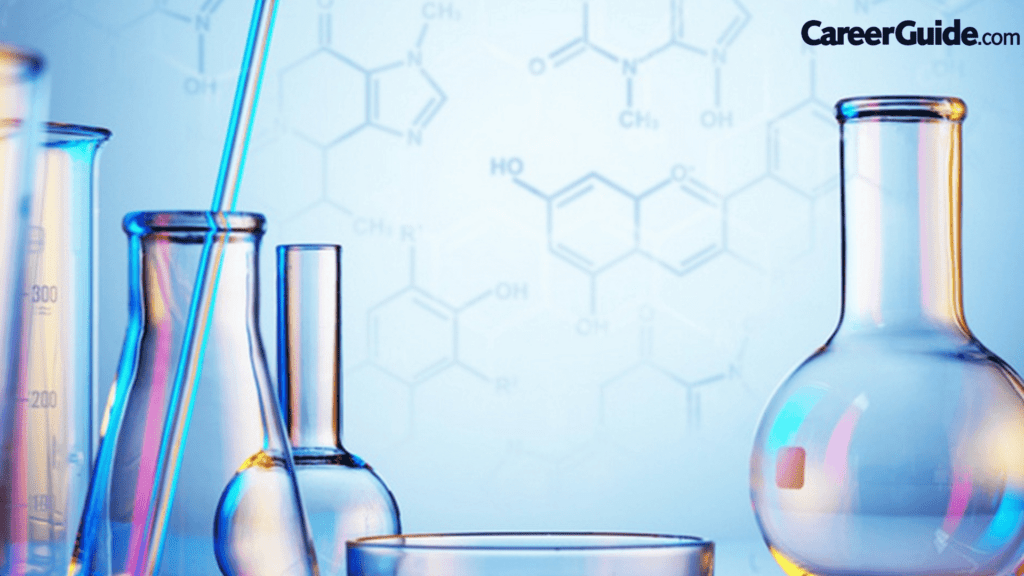The Chemical Engineering branch is the most opted and inquisitive branch of engineering. Chemical Engineers have to be mannered as compared to all the engineering branches because the ignorance of one Chemical Engineer in any particular area can disrupt the whole manufacturing process, damage the machinery of the production line, reduce the purity of the product, and if the situation worsens then can result in heavy losses. So the Chemical Engineer students pursuing Undergraduate, Graduate, and Ph.D. studies should be trained well to avoid accidents and mishaps.
The branch of Chemical Engineering is defined as the “most inquisitive branch of engineering which deals with the design and operation of any particular manufacturing process associated with the process of production”. In simple words, we can define a Chemical Engineer as an engineer who deals with all the processes associated with the conversion of reactants or raw materials into products or final finished goods. Besides this, a Chemical Engineer is assigned the role of a Safety Officer, Process Design Engineer, Plant Head, Site Head, Supply Chain Manager, and many other positions of responsibility in any particular processing plant.
From the above paragraph, we come to know that being a Chemical Engineer is not a joke and it takes a lot to become a Chemical Engineer. The Chemical Engineer has to study a variety of subjects which can be Practical, Graphical, Theoretical, Design Oriented or Numerical in Nature. In these subjects, he has to analyze which topic is of the most and least importance to the Chemical Engineer relative to the Industry, Educational, and Business aspect. Besides this, there are a lot of dos and don’ts for a Chemical Engineer while studying Chemical Engineering and for a successful career in the future.
NIRF top engineering colleges 2023
Do’s

- Attend every lecture of main subjects such as Reaction Engineering, Thermodynamics, Mass and Heat Transfer Operation because these subjectss build the conceptual thinking of an engineer.
- Try to get at least 4-5 Industrial Shop Floor based Internships to get Hands-on Experience of the working of the Industries and it also adds cherry points in your CV which increases your chances in getting a job.
- While working in a college laboratory make sure you get associated with things like Virtual Lab, Experimental Reactors, and etc, so that you exactly know the function of the instruments in the laboratory because this will make you an active learner.
- Try to at least complete 1-3 courses such as Pressure Valve Safety, CHEMCAD, ChemDraw, etc. besides the college curriculum which will add up in your CV, offer good job preference and you will not need to learn anything extra when you get in the industry.
- Try to get associated with Chemical Engineering Societies such asIICHEand AICHE as they are the premier Chemical Engineering societies and offer better learning, research, presentation opportunities for Chemical Engineers.
ENTRANCE EXAM QUESTIONS
Don’ts

- While pursuing Chemical Engineering do not try to take any extra course as it will increase the load and create a fuss between Chemical Engineering and the other course you are taking.
- Keep a maximum of 5-6 books for Chemical Engineering for reference for thse 8 semesters and make sure you do not create a pile of reference books that will only invite confusion and stress.
- Do not take the course of Safety in Industries very lightly as these courses in your academics are of the most importance. This is because Chemical Engineers are held responsible whenever an accident occurs in a Chemical Industry.
- Give importance to SAP, CHEMCAD, Fusion 360, and such other relative softwares and not to Coding Programming and Data Analysis software because the above-mentioned course will help you become a more employable Engineer.
- Do not fool around in the semester vacation gap and make its optimum use to increase the weightage of your CV which increases the chances of getting a job.
download Universities/colleges cutoff
Frequently Asked Questions
A strong background in topics like chemistry, physics, arithmetic, and engineering principles is essential for chemical engineering, as is a thorough comprehension of chemical processes, thermodynamics, fluid mechanics, and reaction kinetics. Success in the field also requires the ability to think analytically, think creatively, and work well with complicated systems.
- Mass and Energy Balances
- Thermodynamics
- Fluid Mechanics
- Heat Transfer
- Reaction Kinetics
- Separation Processes
- Chemical Reaction Engineering
- Process Control
- Process Design and Safety
- Environmental Engineering
Reactors for the manufacture of chemicals or the conversion of raw materials into desired products are known as chemical reactors.
Designing separation systems, such as distillation columns, to divide mixtures into their constituent elements based on variations in boiling points.
Designing heat transfer devices like heat exchangers to effectively transfer heat between process streams and minimise energy use.
Chemical engineers run the risk of coming into contact with potentially dangerous substances and having to ensure safety precautions are taken to avoid mishaps or environmental harm.













